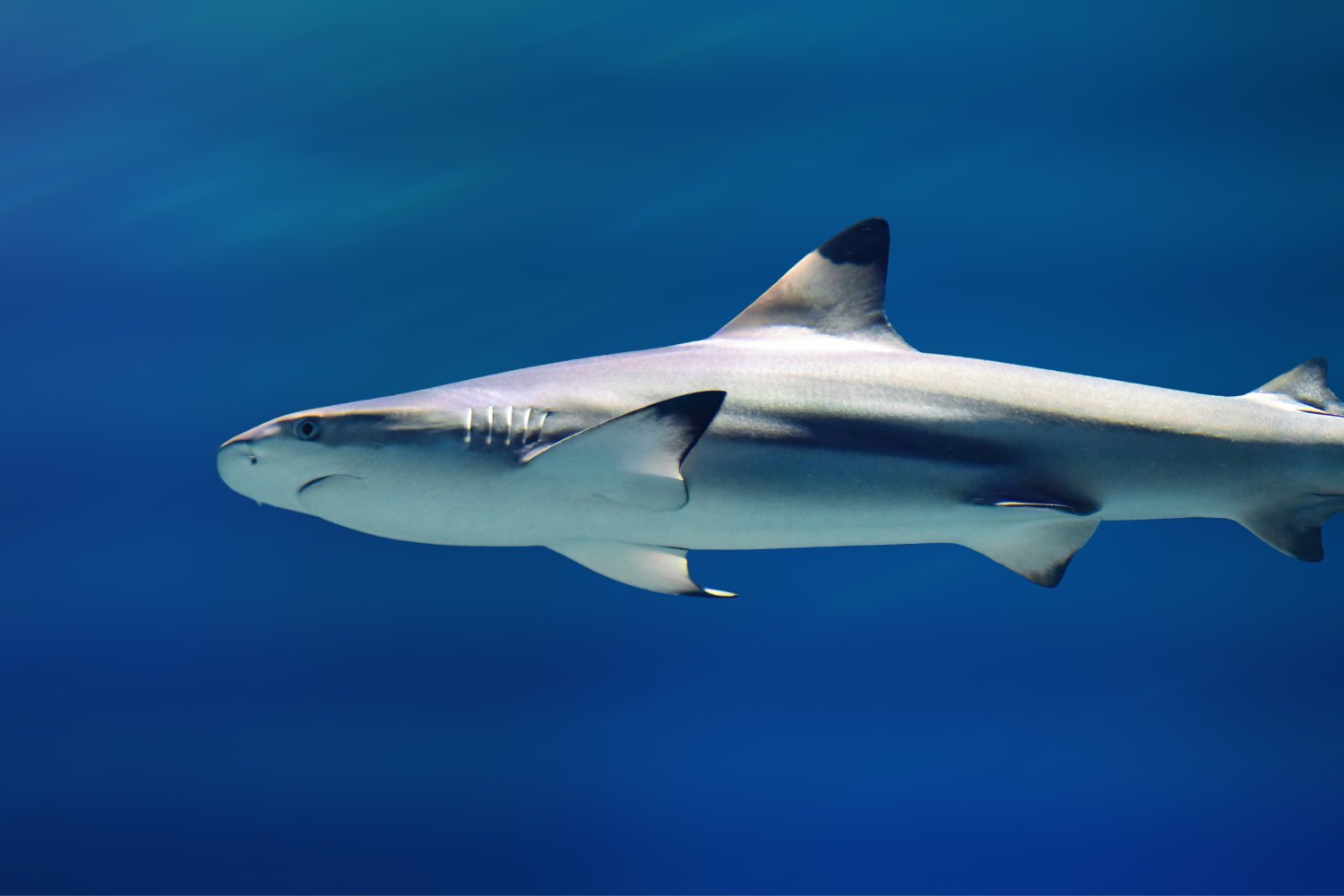A recent study has challenged the common assumption that sharks are primarily responsible for rare human bites. The research suggests that some shark bites can be considered a form of self-defense, rather than an attempt to catch prey.
A team of marine biologists from France, led by shark specialist Eric Clua from PSL University, conducted the study, which was published in Frontiers in Conservation Science. After analyzing global shark bite data, they estimated that around 5% of shark-on-human bites are defensive in nature, rather than predatory. These findings could inform shark bite prevention efforts, according to the researchers.
Clua’s interest in the topic was sparked by his observations during field studies in French Polynesia, where he witnessed fishermen killing sharks that had become trapped in fish pens. In some cases, the sharks would bite the fishermen if they were not killed immediately. Additionally, Clua heard reports of accidental shark bites on underwater spearfishermen, where the sharks appeared to attack only to protect their prey.
“On closer examination, the opportunity arose to model this self-defense mechanism described in the study, which insists on human and not shark responsibility in this type of accident,” Clua explained in an email to Gizmodo.
The researchers began by analyzing data from recorded shark bites in French Polynesia between 2009 and 2023, focusing on incidents with information on the possible motivation behind the bites. Of the 74 documented shark bites, 5% (four bites) were likely motivated by self-defense. Clua and his team then examined data from the Global Shark Attack Files, which contains nearly 7,000 recorded shark bites since 1863. They found that about 5% of the bites (322 overall) met the criteria for self-defense.
The criteria for self-defense bites include sharks biting immediately after a human action perceived as aggressive, and the bites being repeated but leaving superficial, non-lethal wounds. Paradoxically, a defensive shark bite might also be disproportionately violent compared to the human action that preceded it, such as a stranded shark aggressively biting a human trying to return it to the water. However, this disproportionality might simply be a sign of the shark’s desperation to survive, according to Clua.
“The results of this study show that sharks have as much right as any animal or human to defend themselves when their survival is at stake,” Clua said. “They also show that, counter-intuitively, it is advisable not to come to the aid of a shark in danger, as it will not necessarily perceive this human action positively and may react aggressively.”
By understanding the motivations behind shark bites, the team hopes to prevent them from happening in the first place. For instance, people should avoid interacting with or approaching sharks, even if they seem harmless or appear to be in danger. When swimming in shark-infested waters, it is recommended to be in groups of at least two people, as this can reduce the risk of a sustained predatory attack. Unlike some land predators, staying still will not dissuade a predatory shark from attacking, so it is essential to defend oneself if the worst-case scenario occurs.
At the same time, the researchers note that sharks are typically afraid of humans, and shark bites are very uncommon. In 2024, there were only 88 recorded shark bites worldwide, resulting in seven deaths. In contrast, hippos are estimated to fatally attack at least 500 people per year, and diseases spread by certain animals, such as mosquito-borne malaria, kill over half a million people annually. While it is essential to practice good safety in waters that may contain sharks, it is also important not to over-inflate the risk of being bitten.
“In addition to reducing the number of such bites in the field, we hope that one of the major effects of our study will be to modify the vision and attitude of journalists, by suggesting that they take a closer look at the conditions in which bites occur, without systematically blaming the animals, but rather making humans more responsible,” Clua said.
The team plans to continue studying other types of shark bites, such as “exploration”-driven bites, where sharks might bite humans to test whether they are suitable prey.
Source Link





